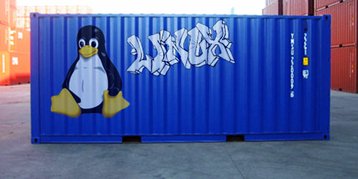Canonical has launched the latest iteration of Ubuntu Linux, featuring an all-new hypervisor for application containers called LXD, first announced in November 2014 at the OpenStack summit in Paris. It promises to deliver the experience of virtual machines, the security of a traditional hypervisor, and performance and density of bare-metal servers.
Version 10.04 also offers the first glimpse of ‘snappy’ Ubuntu Core – a lightweight version of the operating system designed to run containerized applications. Canonical founder Mark Shuttleworth previously called it the biggest change to Ubuntu since the OS was created 20 years ago
Finally, the release adds integration with OpenStack ‘Kilo’, the latest version of the open source cloud platform.
The new frontier
Linux-based application containers package apps and their binaries in individual virtual environments that require less overhead than virtual machines. This approach could gradually replace VMs in many scenarios where high speed and low cost are more important than advanced orchestration features.
LXD is a container-based hypervisor that can run apps in the popular Docker format, offering higher densities than a traditional Kernel-based Virtual Machine (KVM) hypervisor. According to Canonical, workloads which are traditionally run on bare metal servers, such as Hadoop, also benefit since they can perform without the 15-20 percent overhead of KVM.
Ubuntu 10.04 offers live migration of LXD containers between hosts, and automatic security through kernel AppArmor profiles.
“LXD eliminates the very high virtualization penalty of traditional hypervisors, making Linux-on-Linux workloads much faster and much more dense,” explained Shuttleworth. “Containers are the new frontier in virtualization and cloud. We are delighted to lead with LXD and the integration of containers into OpenStack.”
According to Canonical, 64 percent of production OpenStack users choose to build their clouds with Ubuntu, and the company will be the first to make the ‘Kilo’ release available to its users.
Another addition, snappy Ubuntu Core, is a transactional version of the OS designed to run in cloud container hosts or on “smart devices” – including everything from smartphones to drones. Core contains the familiar Ubuntu code, but is packaged with the new ‘snappy’ system which guarantees any updates can be rolled back, both the OS and applications installed on it.
Ubuntu version 10.04 will be available to download on 23rd April.
Last month, Canonical’s rival Red Hat launched its own lightweight Linux distribution for containers called Atomic Host.

